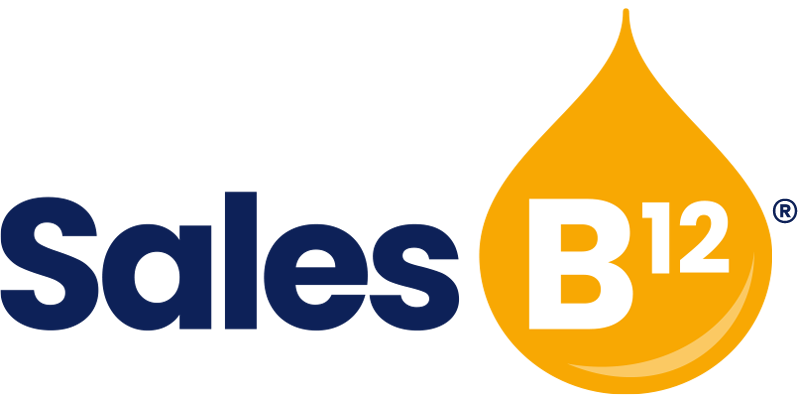Sports teams run better than most businesses, and it’s because they do two things that sales teams do very poorly or not at all: build playbooks that outline best-practice strategies to win and practice it relentlessly. Jack Daly literally wrote the book on Sales Playbooks, and in this episode of Sales B12™, he and Caryn dive into key aspects of creating and getting long-term value from them.
What is a sales playbook?
In all industries combined in the United States, the top quartile produces more than 60%, and the bottom quartile has less than 6%. A sales playbook outlines the best plays for closing deals, like a sports playbook which is vital in choosing the right play to score. It contains the messaging, vocabulary, objection handling, cadence, etc., that top sellers have proven to get more meetings and deals. Finding the best practices for generating wins (i.e., the best plays) is crucial to being effective.
“A client of mine had roughly 400 salespeople, and 11 of them were in the chairman’s club for seven consecutive years. They all had the same competitors, the same economy, the same product, price, and service, but 11 of the 400 were at the top of the pile for seven straight years; figure out what those 11 people are doing, put it into the playbook and practice the playbook.” ~ Jack Daly, Professional Sales Coach
Sellers Build the Playbook, Not Leadership
The best sales playbooks are built in concert with the salespeople and not based on what leadership thinks will work. Jack says, “Think thin to win.” It doesn’t need to be a big volume: it needs to be something sellers welcome with open arms. The playbook should be:
- In a format that can be easily accessed and continuously added to when sellers discover a new success point.
- Inclusive of best-practice messaging for guiding buyers through the decision-making process.
- A living document that aligns with your business growth trajectory.
- Written internally or outsourced to a professional playbook developer like Leverage Sales Coach.
- Referred to regularly by the sales team. If it’s not, the playbook is a failure!
Be Ready for Your “Performance Moment”
Having the playbook isn’t enough. It must be practiced to the point that sellers know the plays so intimately that no matter what the prospective customer says, they can respond to any question or objection automatically because it becomes part of their DNA. Salespeople need to be able to pivot in a split second in a conversation and go where the conversation goes. However, the playbook is not a script, and it’s important not to turn your sellers into an automated kiosk.
“The right sales messaging and making sure your people know how to use it in a performance moment is critical. And it’s a blind spot. Leaders are not testing for this.” ~Caryn Kopp, Chief Door Opener®.
As Jack told his largest sales force of 2600 sellers: “There aren’t 2600 different best ways of doing this!” Lower-level performers have the same economy, competitors, products, price, and services as top-level performers. Document what those top sellers are doing, and practice, practice, practice!

